A beloved pond in a Queens park has lost nearly 94% of its depth in some places — which could lead to a “mass aquatic die-out” of fish, turtles and waterfowl, warns the Girl Scout who uncovered the dire situation.
Emilia McKinney, a 17-year-old senior at Bronx Science High School, discovered that what is left of Golden Pond in Bayside’s Crocheron Park is awash with feces, deadly algae and other filthy pollutants.
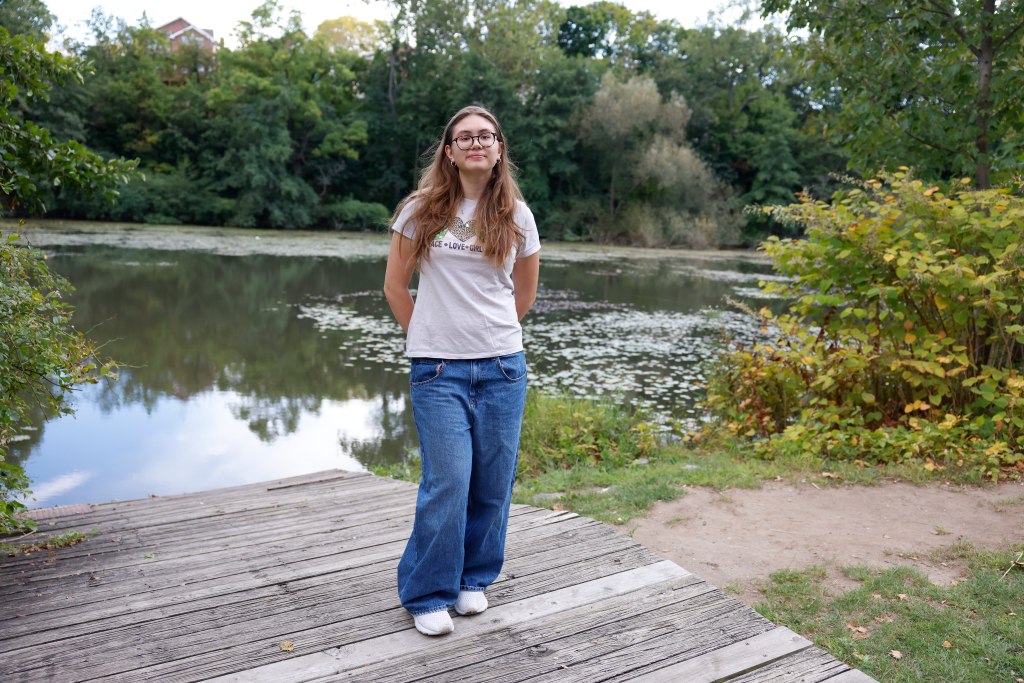
“The overall health of the pond is actively worsening with each flash flood and each heavy rainfall, which causes mudslides in the pond and makes it shallower and shallower,” Emilia told The Post, calling the pond a “breeding ground for algae blooms.”
The teen braniac made the shocking discovery over the summer during the seven weeks she spent monitoring the urban oasis’ water quality as part of her Girl Scout Gold Award, a project she pursued after watching green sludge take over the top of the pond’s surface.
Golden Pond, nicknamed “Turtle Pond” by locals, is surrounded on all sides by slopes, essentially turning it into a “bowl” that collects sewage overflow, excess rainfall and mudslides, particularly from a steep hill where Corbett Road houses sit at the top.
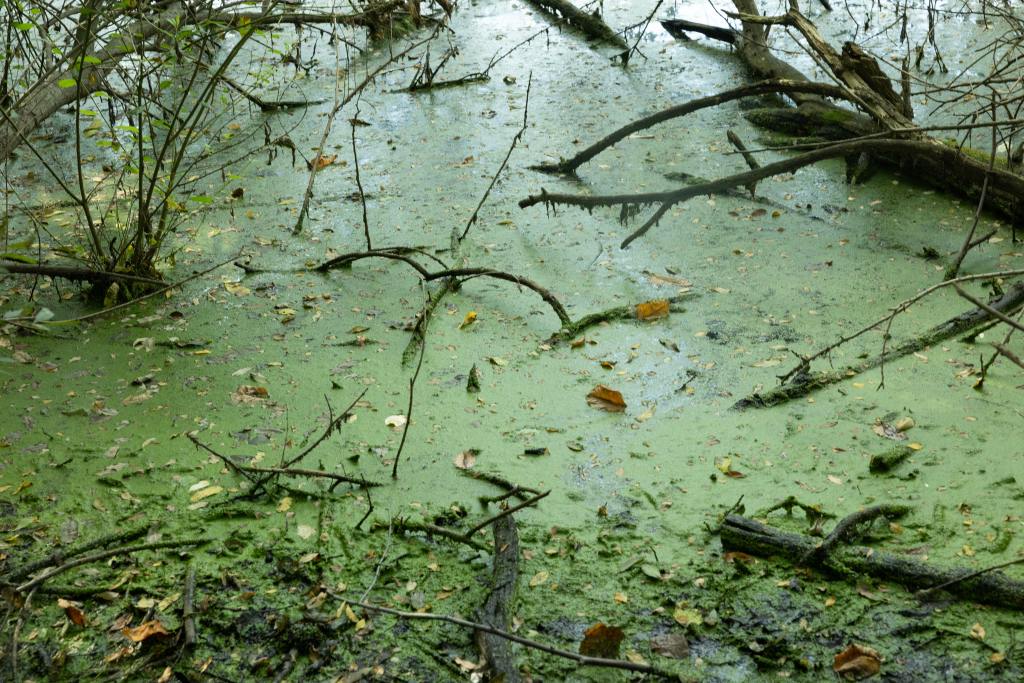
Mudslides became a major issue for it when Hurricane Ida flooded those backyards and ripped apart a major retaining wall above it in 2021, dragging sediment and broken cement into the pond.
Because the retaining wall has yet to be remedied, advocates theorized the issue would have only grown worse with every flash flood since — including the intense, subway-flooding storm that hit the Big Apple in July — but had no concrete proof until the teen stepped up.
“It was known to have a lot of issues, but we didn’t really know what was in there because no one had gone in, and no one had ever done anything. I was like, ‘That’s something I could do,” explained Emilia, who spent an eight-hour day this summer painstakingly measuring the depth of the entire 1.5-acre pond from a kayak as part of her project.
In its shallowest part, Golden Pond was just 6 inches deep.
In 1969, that same area was 7-feet, 3-inches deep — meaning it lost 93.55% of its depth in the past six decades.
The middle of the pond lies around 2 feet, and the deepest part is about 6 feet, meaning even the deepest parts lost 48% in that same timeframe.
“Because it’s shallower, the water is warmer, and because it’s warmer, there’s more likely to be algae, and it’s a cycle,” said Emilia, explaining that algae eats up the oxygen and nutrients available in the pond.
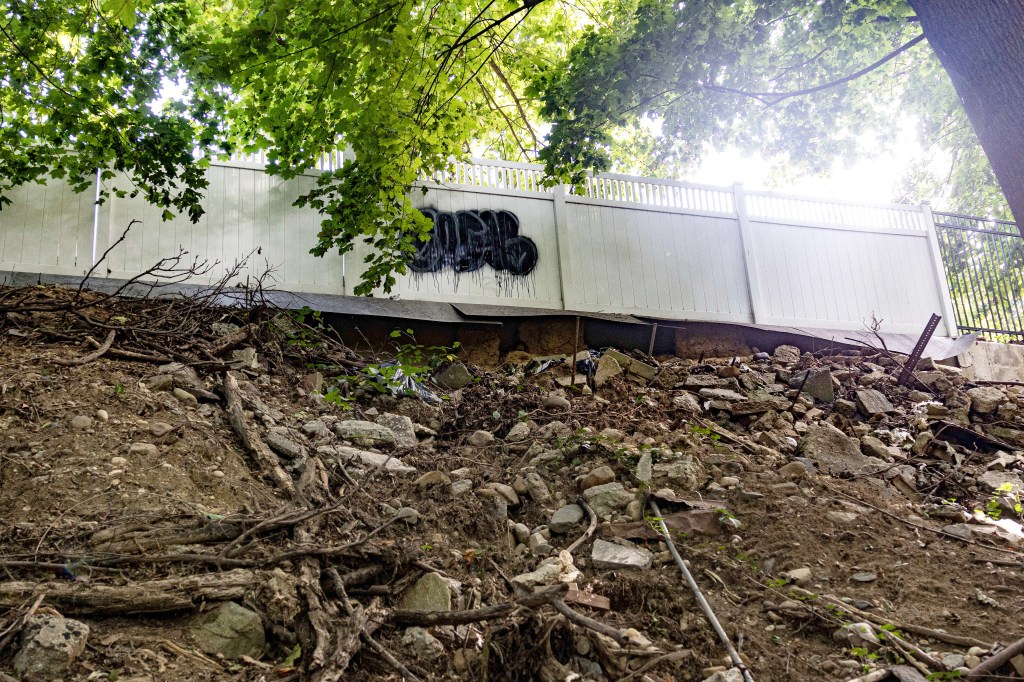
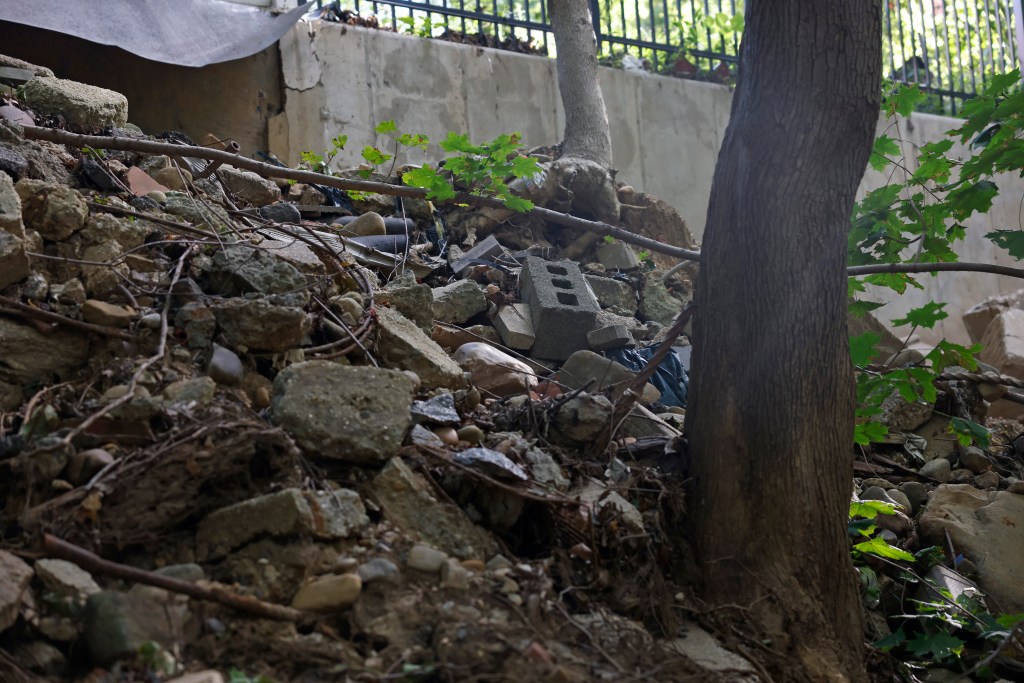
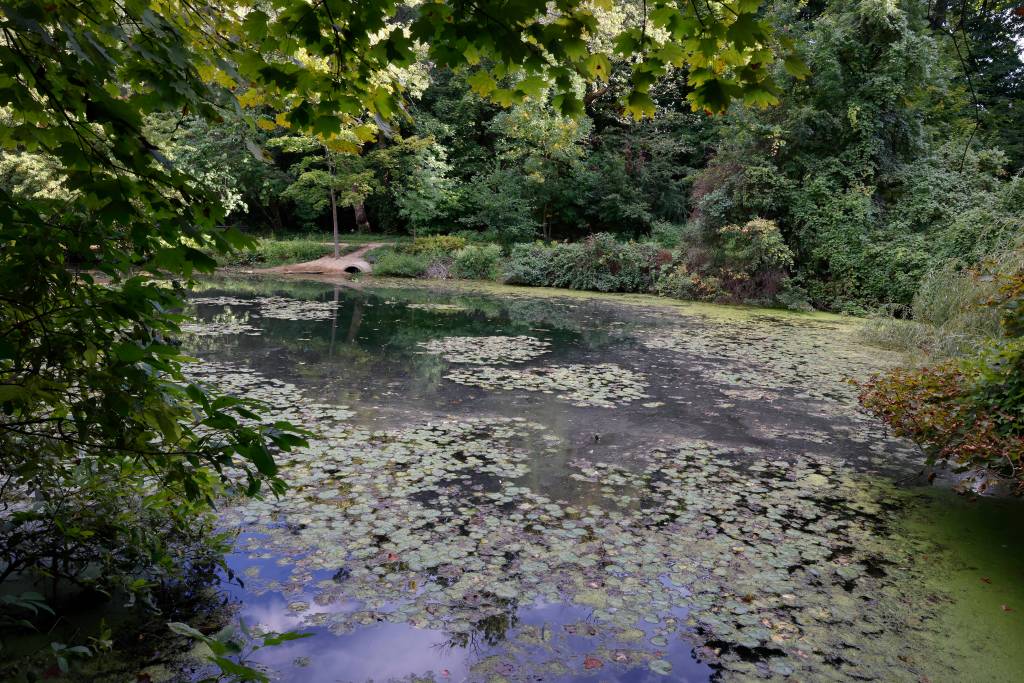
“[This] could lead to a mass aquatic die-out, meaning the fish in the pond that are currently being enjoyed for recreational sport, or the geese.”
As part of her project, every Wednesday for seven weeks, the teen tested the water for nine factors: pH, dissolved oxygen, biochemical oxygen demand, temperature, turbidity, nitrate, phosphate, total dissolved solids and fecal coliform.
While she was limited in scope without access to a lab, Emilia determined that Golden Pond could be considered “medium quality” at best — and “very bad” at worst.
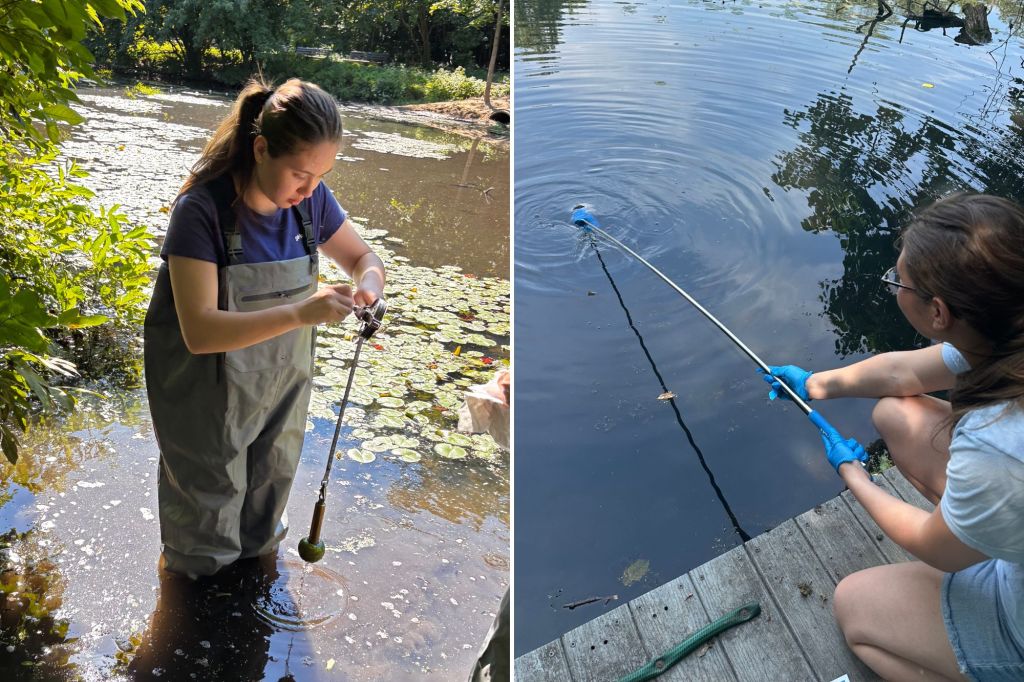
Additionally, the vanishing pond could mean intensified flooding for the neighboring Cross Island Parkway, a roadway that is already prone to puddling during storms.
“To sum it up, it’s not good,” the Girl Scout said.
But the city Parks Department doesn’t share Emilia’s views, telling The Post that its ecologists have determined the pond to be relatively healthy enough that dredging is not being considered at this time.
“Recent assessments confirm that Golden Pond in Crocheron Park supports diverse wildlife including waterfowl, fish, and other aquatic species,” said Judd Faulkner, a rep for the agency, said in a statement.
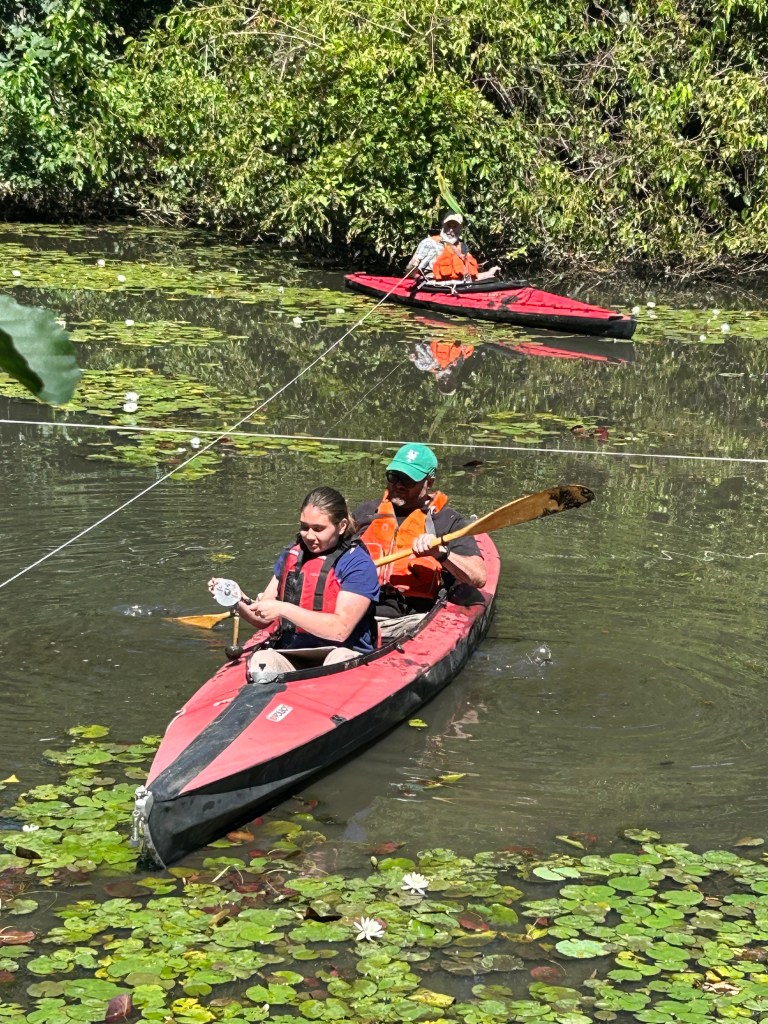
But the representative added that Parks is grateful for Emilia’s “interest.
“NYC Parks is always looking for opportunities in our lakes and pond areas to increase diverse native vegetation cover, stabilize sites vulnerable to erosion, and revegetate areas of bare soil. We are excited to hear from student and community groups who are taking an interest in their natural areas,” Faulkner said.
But Emilia theorized that there simply is not enough funding for the Parks Department to give Golden Pond the attention it deserves and is calling for an intensive investigation into the small body of water’s future.
Further complicating the issue is the crumbling retaining wall, which falls solely under the responsibility of the homeowner on Corbett Road whose property it lies along. The resident did not answer the door when The Post attempted to reach them for comment.
“I think the biggest part is stopping it from actively worsening,” Emilia said.
The post Girl Scout discovers beloved NYC pond has lost nearly 94% of depth, threatening wildlife appeared first on New York Post.




